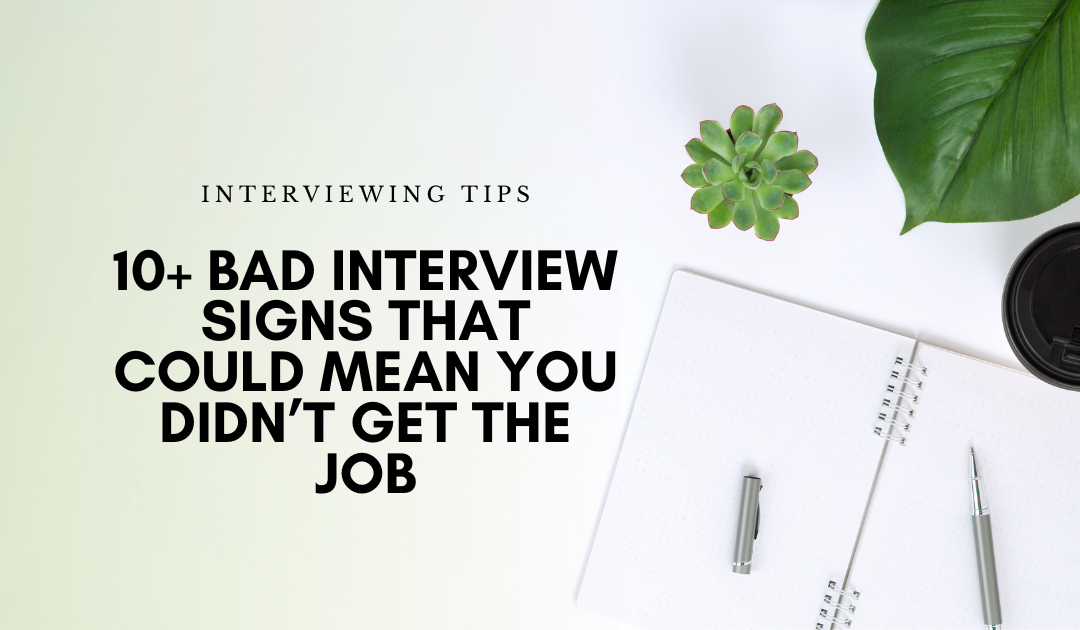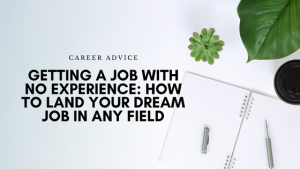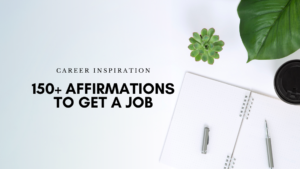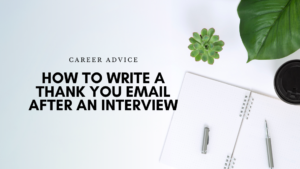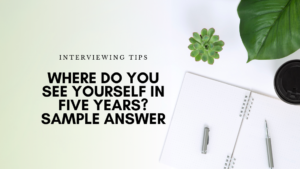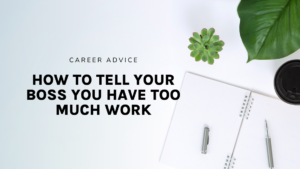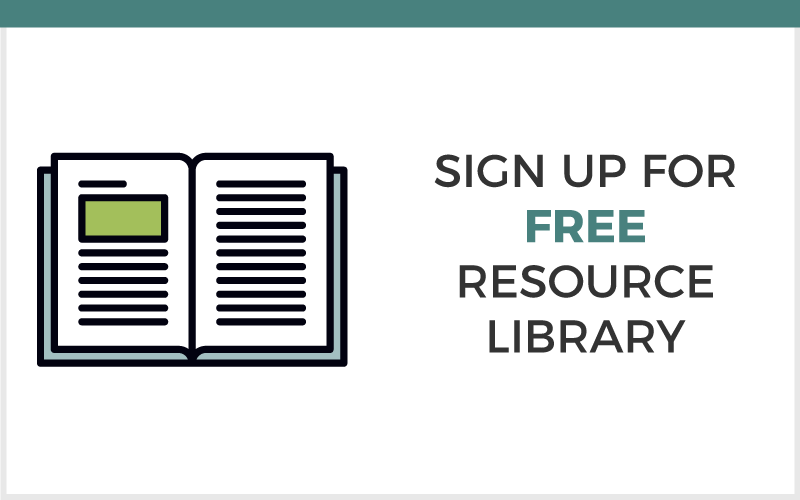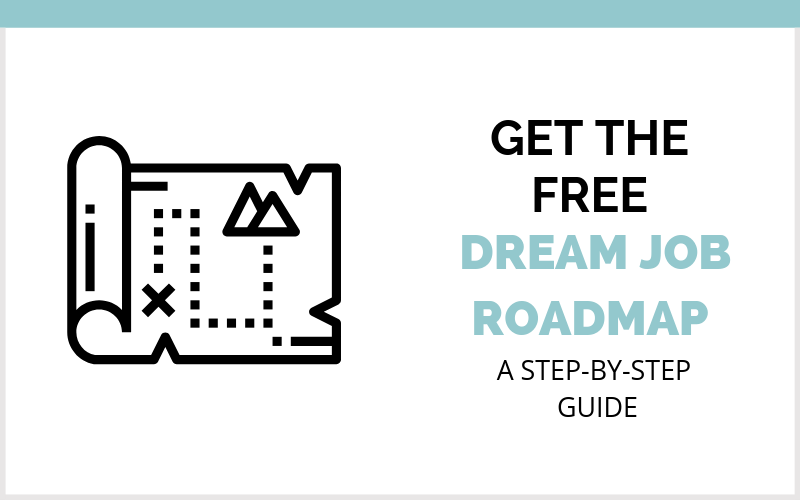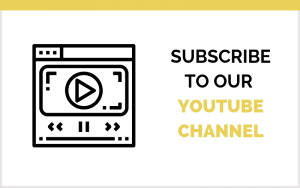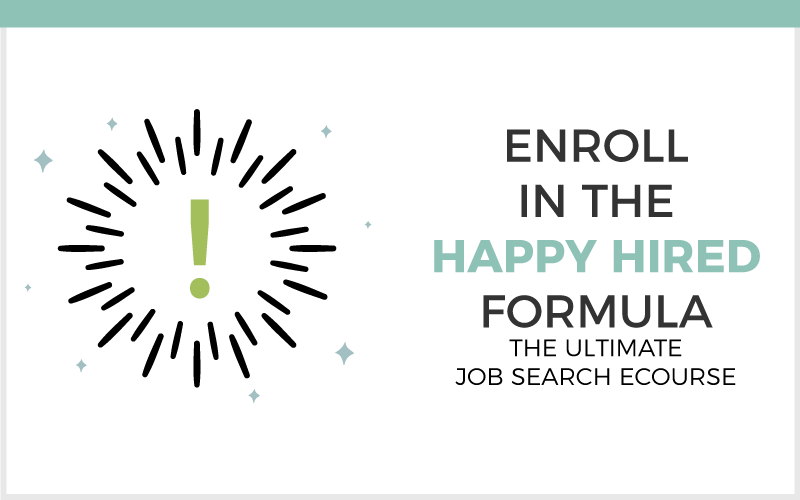Have you ever left a job interview with that nagging question, “Did I just completely mess that up?” Well, you’re not alone. Trying to figure out if an interview went poorly or not can feel like a guessing game of over-analyzing every word that was said. Despite our best efforts and preparation, things don’t always go as planned in an interview. In this post, we’ll go over 10 bad interview signs that could mean you didn’t get the job. From awkward silences to uninterested interviewers, we’ve all been there!
10+ Signs an Interview Went Badly That Could Mean You Won’t Get the Job
If you’re nervously waiting to hear back about how an interview went and if you’re moving onto the next step in the process, here are a few signs that you might not be getting another interview.
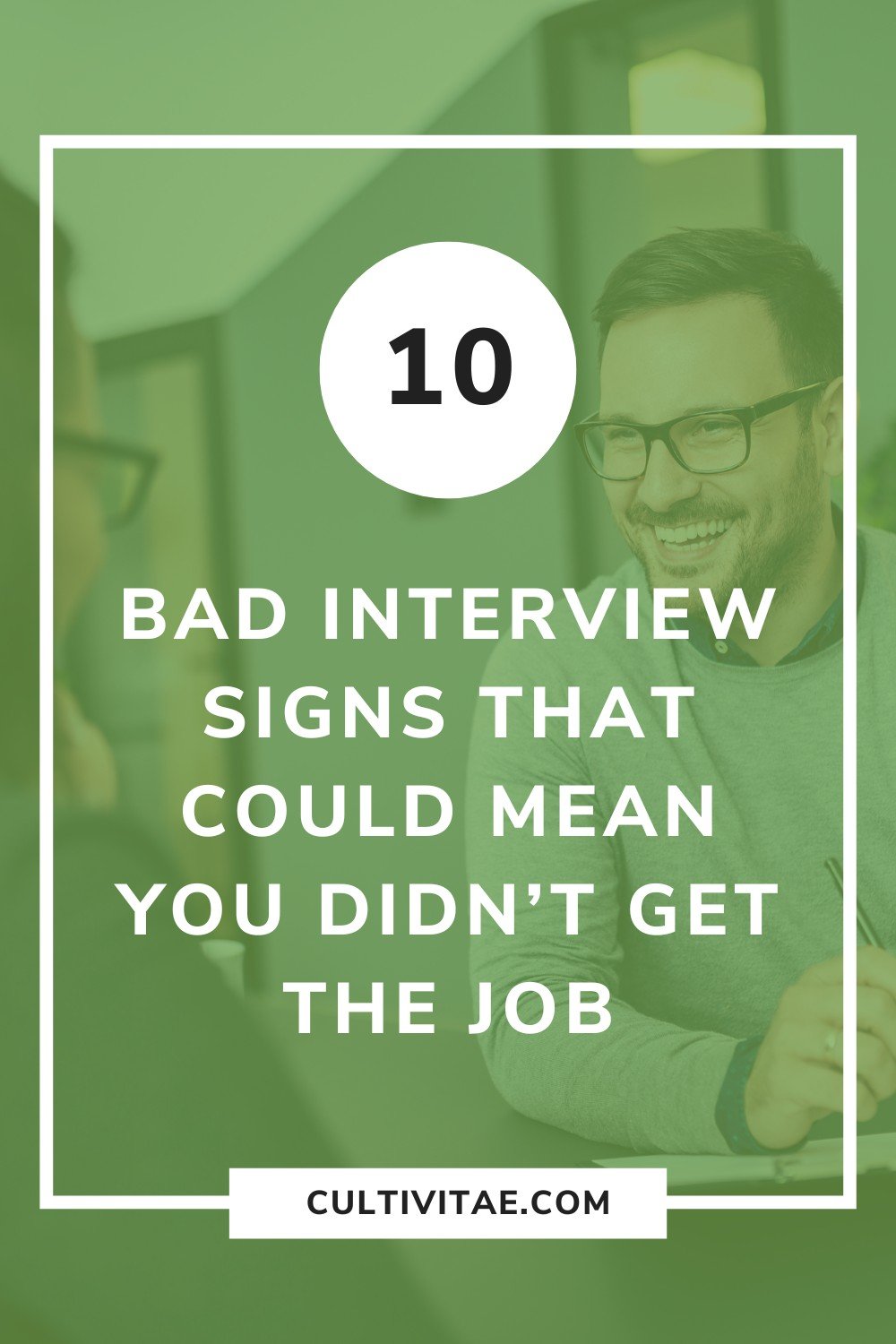
10 Bad Interview Signs That Could Mean You Didn’t Get the Job
1. The interview felt rushed
A great interview often feels like it ends too soon, even when all the time is used. If, however, the conversation was cut short and the interviewer seemed eager to wrap up, it could indicate they’ve already made a decision – and it may not be in your favor. Try not to take it personally (easier said than done!). Reflect on how you might improve in a future interview and use it as fuel to prepare more thoroughly for your next opportunity.
2. The interviewer has disinterested body language
Closed-off body language from the interviewer, like crossed arms or constant frowning, can signal that they’re not interested in you as a job candidate.
Poor eye contact could potentially be another sign that the other person is disinterested, or it could simply mean that your interviewer is neurodivergent or uncomfortable with making eye contact, so take that observation with a grain of salt.
Reflect on your body language, too, to make sure you’re communicating openness and confidence (shoulders back and have good posture!), and don’t forget to smile.
3. The interviewer only gives you short answers to everything
Detailed responses to your questions are one sign of interest. If the interviewer provides very short answers or only responds with ‘yes’ or ‘no,’ it might indicate that they don’t see a future with you as a candidate.
Use this experience to think about how you could prompt a more natural back-and-forth conversation in the future, perhaps by asking more open-ended questions when they ask the classic “Do you have any questions for me?”
4. You get minimal details about the job
Clarity about the role is crucial for both sides. If the interviewer was vague about the job, they might not see you in it. However, this can also be a sign to ask more pointed questions in future interviews to ensure you and the interviewer are on the same page. If you’re not sure what your day-to-day responsibilities will look like in the job, then ask!
5. The interviewer acts like they don’t want to be there
An enthusiastic attitude from an interviewer can be infectious and affirming. A lack of it, however, could be a sign that the interview isn’t going well. Whether or not you’re getting a lot of enthusiasm on their end, you can still bring your own positive attitude to the interview!
Also, although it’s not super common, it’s not unheard of for interviewers to act neutral or stoic because they want to see how you do in the interview regardless of their attitude (or, even sneakier, some companies want to see how you behave under pressure and stress!).
Related Post: Where Do You See Yourself in Five Years? Sample Answer
6. No opportunity for you to ask questions
In most interviews, the hiring manager or recruiter will ask if you have any questions for them. If they conveniently forget to ask if you have any questions during or at the end of the interview, they may have already mentally checked out.
In future interviews, find an appropriate moment to ask a thoughtful question to show your enthusiasm and curiosity about the job or company you’d be working for.
7. Negative comments about your work experience
If the interviewer makes negative comments about your resume or past work experiences, that’s a pretty clear red flag for the interview.
It’s like the classic scene from The Devil Wears Prada when Miranda Priestly is interviewing Andrea:
“Miranda: You have no style or sense of fashion.
Andrea: I think that depends on –
Miranda: No, no- that wasn’t a question.”
In other words, if the interviewer actually points out your lack of relevant experience or makes other negative comments, there’s a good chance you won’t be getting a second interview (although Andrea did end up getting that job!).
8. You never get to meet the rest of the team
If you go through multiple rounds of interviews but somehow never meet the rest of the team you’d be working with (including your possible manager), that could be a bad sign. Try not to let this discourage you!
Odds are, in the first interview or two, you’re only going to meet with one other person and it’s not until later on that you would meet more of your future colleagues.
9. The interviewer doesn’t give you information about next steps
When interviewers are considering a candidate, they often outline what comes next in terms of scheduling additional interviews with you. If they didn’t share these details with you either at the end of the interview or in an email sent out in the next few days, it might mean they’re not planning to move forward.
However, it’s also a chance for you to proactively follow up (send a follow up email soon after your interview!), showcasing your continued interest and professionalism.
10. You don’t hear anything after the interview
It’s official: you’ve been ghosted and you never hear from them again. While it’s an unfortunate reality in the modern job market where many positions get hundreds of applicants, some companies will only contact you after the interview if they are interested in moving forward, and no response means rejection.
Take a little time to grieve, then dust yourself off and get back out there! Do you even want to work for a company that ghosted you? 😉
Related Post: How to Answer “Tell Me About Yourself” in an Interview
Is a Short Interview Good or Bad?
Generally speaking, a short interview is a bad sign. However, if an interview is only scheduled for 15-30 minutes, that could be perfectly reasonable (also, an initial phone screen will almost always be shorter than the real interviews!).
Typical interviews will fall more in the 45-60 minute range though, so keep in mind how long the interview was SUPPOSED to take compared to how long it actually lasted.
Maybe you found this post because you’ve just gone through an interview that left you with a sinking feeling in your gut.
We’ve all been there.
But here’s the truth: it happens to the best of us, even those who have spent years in the corporate world. The good news is that a less-than-ideal interview experience doesn’t have to be the end of the road for your job search journey. Even if you totally bomb an interview, you can always try again with a different company or at a different time in the future.
Rejection is redirection!
As someone who has spent over a decade in the world of recruitment and career coaching, I’ve seen it all. I’ve witnessed the highs of successful interviews that led to dream jobs and the lows of interviews that didn’t quite hit the mark.
I want you to know that even when things don’t go as planned, it doesn’t define your worth or potential as a candidate.
Maybe it was the awkward silence, the interviewer’s disinterest, or the feeling that your responses fell flat. It can be disheartening, but each of these offers an opportunity for growth.
Interviews are a two-way street, and sometimes external factors or even interviewer biases can come into play. Remember how WORTHY you are and don’t let a single interview shake your confidence.
Also, use these moments as a chance for reflection.
Is there anything you could have done differently?
How can you refine your interview skills?
Seek feedback if possible through mock interviewing, and don’t hesitate to ask for constructive criticism. Learning from your mistakes is a hallmark of a resilient and determined candidate.
Landing your dream job isn’t solely about your experience, education, or skills. It’s about continuously improving your strategies and mindset.
Every interview, whether successful or not, is a valuable opportunity to gain insights and grow as a professional.
Your dream job could be closer than you think!
If you’re ready to find a better role for this season of your life, check out my FREE on-demand masterclass to get the freshest strategies on how to go from feeling stuck to landing more ALIGNED interviews & offers.
Emily Liou and her team believe that everyone can land their dream job. Want to find out more about how you can wake up happier on Mondays? Whether you like to work at your own pace or have a group to hold you accountable, there’s a Happily Hired job search program to shortcut your job search today.

